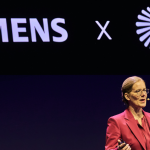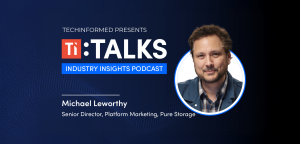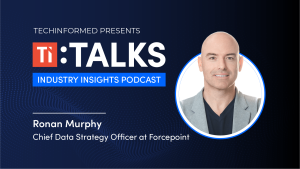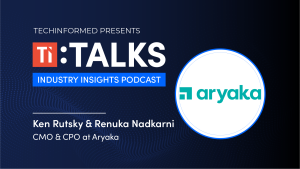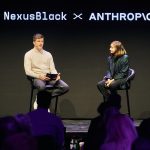
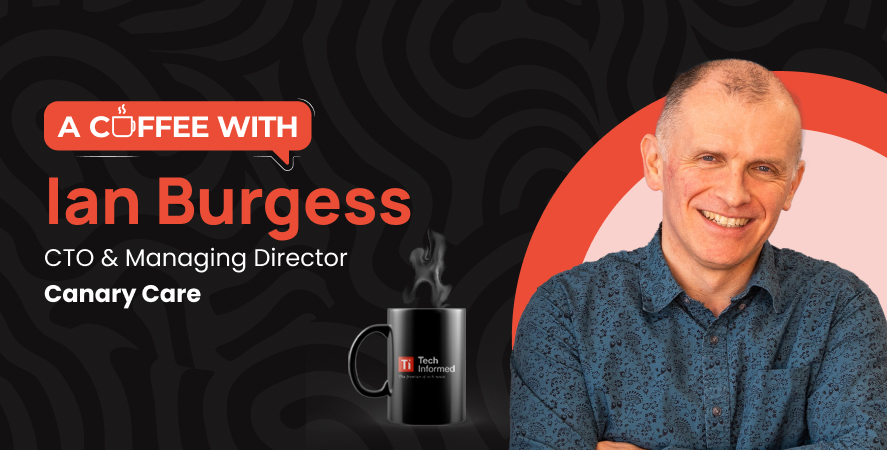
Ian Burgess, managing director & CTO, Canary Care
From smart meters to discreet in-home sensors, Canary Care is redefining what technology can do for health and well-being. West talks about the power of predictive insights in care, and why understanding business matters more than chasing the latest tech trend
After years of leading technology transformations in industries as diverse as Formula One racing, energy trading and logistics, Ian Burgess now brings his business-first approach to a mission with social impact.
As managing director and CTO of Canary Care, part of the Utilita Group, he’s using data and connected devices to help people live independently for longer — without sacrificing privacy or dignity.
What was your career leading up to your current role at Canary Care?
I’ve been in technology infrastructure for many years now. Like a lot of people, I fell into tech after university. I had a computer, knew a bit about it and before long I was “the tech person.” The rest, as they say, is history.
Most of my roles have involved transformation — big upgrades, acquisitions, mergers, that kind of thing. I’ve always found myself in positions where major change was happening. And every time I’ve switched jobs, I’ve also changed industries. I’ve worked across ten sectors so far, from online gaming and Formula One to energy trading, logistics and automotive.
I enjoy understanding how businesses work and how technology can help them. The tech itself is always evolving, of course, but what really motivates me is learning how a business operates — getting “under the bonnet,” so to speak — and figuring out how tech can make it more successful.
And now you’re doing that at Canary Care — with a purpose-driven mission too.
Absolutely. Our parent company, Utilita, was founded over 20 years ago to serve people who were traditionally underserved: low-income households with prepay energy meters who were often paying more for worse service. The aim was to give them a better experience.
That ethos carried through when Utilita acquired Canary Care three or four years ago. We’re still focused on helping vulnerable people, just now from a health and well-being perspective rather than energy. Supporting vulnerable people is really part of our DNA as a business.
Could you explain what Canary Care does and your role there?
Canary Care is a platform that helps people live independently at home for longer. It uses discreet sensors — not cameras or microphones — to monitor activity and spot patterns or changes in behavior.
Care workers might visit someone three or four times a day, but most of the time that person is alone. Our system fills that gap. The sensors can detect things like movement, temperature and daily routines, which can help families or carers notice if something’s wrong — for example, if someone hasn’t been moving around as usual or hasn’t gone upstairs at bedtime.
It’s not just for elderly people; it can help anyone with a disability or mental health condition. The data gives a clearer picture of someone’s well-being and can even be used for rehabilitation. Say someone’s recovering from hip surgery: you can see their mobility improving over time. Or, if their movement decreases, it might signal that they need more support.
We’re also integrating other data sources like energy usage to build a fuller picture. For example, if energy data shows that an oven’s been left on, that might indicate early dementia. Or if the washing machine hasn’t been used for a while, that might be a sign someone needs checking in on. Combining these insights helps predict when someone might need extra care before a crisis happens.
And privacy is clearly an important part of that.
Definitely. People don’t want cameras in their homes. The sensors are small and discreet. You might have one at the top and bottom of the stairs, for instance, to track how long it takes someone to get up or down. That kind of data can be incredibly insightful without invading anyone’s privacy.
You’re managing director and CTO; how do those two roles fit together?
I do wear a lot of hats! I also run a sister company called Procode, which spun out of Utilita. Procode builds the tech for Utilita and for Canary Care, as well as for other parts of the group. So I oversee both Canary Care as a business and the wider tech function across the group. Basically, if it involves technology, it ends up on my desk somehow.
How have your previous roles influenced how you work now?
I’m not your typical techie. I’ve always focused on business first, technology second. It’s about solving real challenges, not chasing the latest gadget or buzzword. When you build partnerships across the business, you can deliver much more value, and when something does go wrong, you’ve got that trust and goodwill in place.
Have there been any standout moments or highlights in your career so far?
Lots! At Utilita we’ve always developed our own technology. Prepayment systems aren’t something you can just buy off the shelf. We installed the first smart meters back in 2007 or 2008 and have had many industry firsts since.
We’ve been recognized by Ofgem and others for our innovation, and our apps have won awards. It’s easy to take that for granted, but when visitors from other energy companies come in and are amazed by what we’ve built, it’s really humbling.
I was also ranked number three in the CIO100 Awards in 2024, which was a proud moment. It’s nice when external recognition confirms that the hard work is paying off.
Do you have a favorite piece of tech in your personal life?
My house is full of smart tech. We have around 250 smart lightbulbs and all sorts of gadgets. My 12-year-old son is even more into it than I am! I test everything new myself, from smart meters to home devices, because if I’m not prepared to use it I can’t expect our customers to.
Your recent report found that 94% of care tech providers said procurement, not technology, was the biggest barrier. Does that align with what you see?
Yes, funding is a huge issue. But more than that, the way health and care are funded separately creates a disconnect. Preventing hospital admissions saves the government money. We need a more joined-up approach, especially with the UK government’s new 10-year healthcare plan to make tech-enabled care more sustainable.
Do you ever switch off from tech?
I unwind by doing practical projects at home. I’m in year five of a home renovation, and I’ve completely rewired and rebuilt large parts of the house myself. It’s a different kind of challenge and a good way to switch off mentally, even if it still involves a bit of tech.



